When it comes to dashboard development, React JS is a powerful tool that stands out for creating dynamic, user-friendly, and high-performance dashboards. At NOS Digital UAE, we pride ourselves on delivering the best dashboard design solutions tailored to our clients’ needs. In this blog, we’ll delve into the key elements of effective dashboard design, highlight the benefits of using React JS, and offer insights into how our expertise can elevate your web development projects. Whether you’re involved in ecommerce web development, content marketing, or are looking to improve your SEO strategy, this guide will provide valuable information to enhance your digital presence.
Why Choose React JS for Dashboard Development?
React JS is renowned for its versatility and efficiency, making it a popular choice for dashboard development. Here’s why React JS is a top contender for creating effective and scalable dashboards:
1. Component-Based Architecture
React’s component-based architecture allows developers to build reusable UI components. This modular approach simplifies the development process and ensures that changes in one part of the dashboard don’t affect the entire system. For web development projects, this means faster development times and easier maintenance.
2. Performance Optimization
React uses a virtual DOM to optimize performance. Instead of updating the entire DOM, React only updates the components that have changed. This results in a smoother and more responsive user experience—crucial for data-heavy dashboards where real-time updates are common.
3. Rich Ecosystem and Libraries
React’s ecosystem includes a range of libraries and tools that can enhance dashboard functionality. Libraries such as Redux for state management and D3.js for data visualization can be seamlessly integrated into React projects. This flexibility is particularly beneficial for ecommerce web development, where custom features and real-time data analytics are often required.
4. Strong Community Support
With a large and active community, React offers a wealth of resources, tutorials, and third-party tools. This community support can be invaluable for troubleshooting issues and keeping up with the latest best practices in dashboard development.
Key Elements of a Successful Dashboard Design
Effective dashboard design goes beyond just aesthetics. It involves creating a user experience that is intuitive, informative, and engaging. Here are the essential elements to consider:
1. User-Centric Design
Understanding the end-user’s needs is critical. Dashboards should be designed with the user in mind, ensuring that the most important data is easily accessible. This approach not only enhances user satisfaction but also boosts engagement, which is a key aspect of successful content marketing.
2. Data Visualization
Data visualization plays a crucial role in dashboard design. Use charts, graphs, and other visual elements to present data in a clear and meaningful way. Effective data visualization helps users quickly interpret complex data, which is particularly important in ecommerce web development where real-time data can drive decision-making.
3. Responsiveness
In today’s multi-device world, ensuring that your dashboard is responsive is essential. A well-designed dashboard should offer a seamless experience across various devices, including desktops, tablets, and smartphones. This aspect of design is vital for maintaining user engagement and improving overall usability.
4. Performance and Speed
Speed is crucial for user experience. A sluggish dashboard can lead to frustration and reduced productivity. Optimize performance by minimizing the number of components that re-render and using lazy loading for non-critical elements.
5. Customization and Flexibility
Offering customization options allows users to tailor the dashboard to their preferences. Whether it’s choosing which widgets to display or setting up personalized alerts, flexibility can significantly enhance user satisfaction.
NOS Digital UAE’s Approach to Dashboard Design
At NOS Digital UAE, we leverage our expertise in React JS to deliver exceptional dashboard design solutions. Here’s how our approach stands out:
1. Tailored Solutions
We understand that every client has unique requirements. Our team works closely with you to understand your business needs and create a dashboard that aligns with your goals. Whether you’re involved in ecommerce web development or need a dashboard for internal use, we tailor our solutions to meet your specific needs.
2. Best Practices in Web Development
Our developers are well-versed in the latest web development trends and best practices. We ensure that our dashboard designs incorporate the latest technologies and methodologies, providing a robust and scalable solution.
3. Integration with SEO and Content Marketing
A well-designed dashboard not only enhances user experience but also supports your broader digital strategy. We integrate SEO-friendly practices into our designs, ensuring that your dashboard contributes to your overall online presence. Additionally, our expertise in content marketing helps us create dashboards that support your marketing goals and provide valuable insights.
4. Continuous Improvement and Support
The digital landscape is ever-evolving, and so are we. Our team provides ongoing support and maintenance to ensure that your dashboard remains up-to-date and continues to meet your evolving needs.
Case Studies: Success Stories from NOS Digital UAE
1. Ecommerce Dashboard for XYZ Retail
We developed a comprehensive dashboard for XYZ Retail, enabling them to monitor sales, track inventory, and analyze customer behavior in real-time. The integration of advanced data visualization tools allowed them to gain actionable insights and make data-driven decisions.
2. Internal Analytics Dashboard for ABC Corporation
ABC Corporation required an internal analytics dashboard to track employee performance and project progress. Our React JS-based solution provided them with a customizable and user-friendly interface, significantly improving their reporting processes.
Tips for Effective Dashboard Design
1. Prioritize User Needs
Start by identifying the key metrics and information your users need. Focus on presenting these elements clearly and prominently.
2. Keep it Simple
Avoid overloading your dashboard with too much information. A clean and simple design helps users focus on what’s important and enhances usability.
3. Use Interactive Elements
Incorporate interactive elements like filters and search functions to allow users to explore data more deeply and tailor their view.
4. Test and Iterate
Regularly test your dashboard with real users to gather feedback and make necessary improvements. Iteration is key to creating a dashboard that truly meets user needs.
Conclusion
Creating the best dashboard design in React JS involves more than just technical skills; it requires a deep understanding of user needs, effective data visualization, and adherence to best practices in web development. At NOS Digital UAE, we combine our expertise in React JS with a user-centric approach to deliver dashboards that not only meet but exceed expectations. Whether you’re focusing on ecommerce web development, content marketing, or SEO, our tailored solutions can help you achieve your digital goals.
For more insights and updates on dashboard development and other web-related topics, stay tuned to our blog. And if you’re ready to transform your digital presence with a cutting-edge dashboard design, contact us at NOS Digital UAE today!
This comprehensive guide is designed to provide valuable insights into React JS dashboard development and the expertise of NOS Digital UAE. By integrating key industry terms and focusing on user-friendly content, this blog is optimized for better visibility and engagement.


